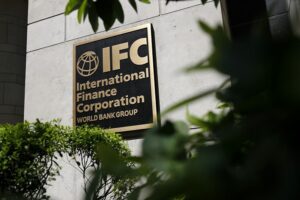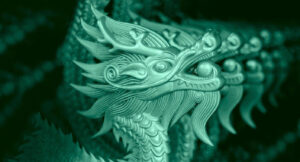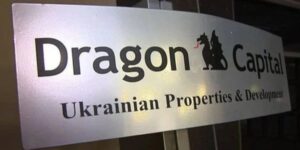
Leading Ukrainian investment company Dragon Capital made investments of nearly $100 million in 2025, but did not manage to complete all of them, Dragon Capital founder Tomas Fiala said.
“Last year, we approached the pre-war level of new investments, which was over $100 million,” he said during a discussion at the Center for Economic Strategy on Friday dedicated to the main trends of the year for the Ukrainian economy.
Fiala noted that in the first two years of the war, the task was to preserve the business, restore it after the fall in 2022, and complete all capital investments that had been started before the war.
“Well, the last two years have been about expanding the business. We can no longer wait to make decisions ‘after the war’; it already takes a long time to wait for the war to end,” explained the head of Dragon Capital.
“And this year, we plan to do even more,” he emphasized.
Fiala noted that the growth plans are linked to the creation of two private equity funds — Rebuild Ukraine Fund (REBUF) and Amber Dragon Ukraine Infrastructure Fund I (in partnership with the British company Amber Infrastructure) — which the company has been actively working on for the past year and a half. The target volumes of these funds are $250 million and $350 million, respectively, and Dragon Capital’s contribution to each of them is $20 million.
The head of the company specified that the first closing of REBUF with a volume of $102.5 million took place on Friday, while the announcement of the first significant closing of Amber Dragon Ukraine Infrastructure Fund I is expected next week.
Fiala added that Dragon Capital, together with Amber Infrastructure, was selected as the winner of the competition to manage the EU Flagship Fund for Reconstruction of Ukraine with a declared volume of EUR 220 million among 12 applicants, four of which made it to the final.
According to him, Dragon Capital is ready to invest EUR40 million of its own funds in this fund, and other investors, as in the two previous funds, are five European IFIs (International Financial Institutions) and DFIs (Development Financial Institutions).
“We are currently in the process of due diligence… We plan to start investing in the middle of next year,” Fiala said. He stressed that none of these funds have restrictions on investments in physical assets.
Regarding the challenges faced by Dragon Capital’s businesses in 2025, the head of the company noted that there was no significant difference from previous years, with security risks remaining in first place.
According to him, more significant risks related to the rule of law were added in the summer, when the company suspended all investments for about three weeks during an attack on anti-corruption agencies.
“It felt like we had returned to the days of Yanukovych and authoritarian rule in the country, and we only resumed investments after the Verkhovna Rada and the president corrected their mistake and waited for the government to appoint the head of the BEB,” Fiala said.
He added that there were also cyberattacks on the company and that there are still challenges with labor resources.
“We estimate that the employee shortage is at 20%, which is about 2 million people.
Salaries are growing by 20-25% per year and are higher in currency terms than they were before the war,” the head of Dragon Capital described the situation.
At the same time, according to him, most businesses are growing faster than inflation, at 10% to 20% or even more, although expenses are also growing rapidly.
“It is difficult for us to maintain the same business margins in our budgets for the 26th year that we had in the last two years, which were basically not bad,” Fiala stated.

The International Finance Corporation (IFC), part of the World Bank Group, will contribute $25 million to the Rebuild Ukraine Fund LP (REBUF) private equity fund, which was launched a year ago by leading Ukrainian investment group Dragon Capital.
According to the IFC website, its board of directors approved the project at a meeting on November 3.
The corporation specified that REBUF is focused on small and medium-sized enterprises, has a target size of $250 million, and is a universal fund that focuses on consumer goods and services, healthcare, pharmaceuticals, financial services, agriculture-related sectors, construction materials, retail, and technology.
“The fund aims to acquire controlling stakes through buyout or growth capital strategies in mature companies,” the IFC added.
According to the materials, the investment will be backed by a first-loss guarantee of 50% of its amount, supported by France and other guarantors.
As the corporation noted, its contribution as an anchor investor will be crucial in supporting the fund in achieving its first closing in a challenging fundraising environment. The IFC recalled that since Russia’s full-scale invasion of Ukraine, only one private equity fund has been launched, and its successful closing required significant support from development finance institutions (DFIs), including the anchor role of the IFC (the $350 million Horizon Capital Growth Fund IV – IF-U). REBUF is expected to require similar support and will be financed primarily by DFIs, according to published materials.
Andriy Nosok, managing director and head of direct investments at Dragon Capital, announced at the Ukraine Recovery Conference in Rome in July that the company would invest $20 million of its own funds in REBUF. In addition, the European Bank for Reconstruction and Development approved a decision to contribute $25 million to the fund in early July. According to Nosok, the first closing of the fund was planned for September this year.
He recalled that Dragon Capital has been investing in private equity in Ukraine for 25 years, including managing direct investment funds since 2010. REBUF is the third such fund, which follows the same strategy as the previous ones. According to the REBUF presentation, the size of investments in companies is $7-30 million.
Dragon Capital is one of the largest investment groups in Ukraine in the field of investment and financial services, providing a full range of investment banking and brokerage services, direct investments, and asset management for institutional, corporate, and private clients. The company was founded in 2000 in Kyiv. According to founder and CEO Tomas Fiala, the group’s investment portfolio currently includes nearly 50 different companies or real estate projects. Between 2015 and 2021, the company invested approximately $700 million in Ukraine, excluding reinvestments, and plans to invest $100 million in 2025.
As reported, the EBRD and IFC also plan to contribute EUR60 million and EUR40 million, respectively, to the capital of the new Amber Dragon Ukraine Infrastructure Fund I with a declared target size of EUR350 million. The EBRD Board of Directors will consider this project on December 3. The European Investment Bank (EIB) already approved a contribution of EUR40 million to this fund at the end of September.

Investment company Dragon Capital is completing the creation of two new investment funds with a total volume of approximately $609 million, according to the company’s founder and CEO Tomas Fiala.
According to him, the first fund, worth $200 million, will focus on small and medium-sized businesses with a turnover of up to EUR50 million.
“Next month, we will have our first closing at just over $100 million, and the second in 2026, where we will reach $200 million. We are already working on a pipeline of several dozen projects, where we are selecting which companies to invest in, and we are mainly buying majority stakes in companies,” Fiala said at the Global Outlook: Strategic Momentum conference organized by the European Business Association (EBA) in Kyiv on Friday.
According to him, the second fund, worth EUR350 million, will focus on infrastructure investments. Its first project will be in the energy sector, where Dragon Capital has already invested its own funds.
By the end of the year, the company plans to launch 65 MW of generating capacity—batteries and gas piston stations—and is also preparing projects for another 200 MW, which are planned to be implemented by the end of next year.
Fiala also said that last month the company invested more than UAH 300 million in the capital of its bank through subordinated debt. In addition, Dragon Capital invested $30 million in the energy sector in 2025 and expects to attract a loan from the EBRD for EUR21 million by the end of the year to increase its investment in this sector to over $50 million.
At the same time, he noted that private investors are still cautious due to the risks of war, while the main participants in the funds are currently international financial organizations and Scandinavian sovereign wealth funds.
“There are those who are watching, but they will mostly be ready to make the investment itself, either if it is very cheap or after the war, after the truce, because the risks are high that something will fly in — we ourselves had about five of our assets destroyed at the beginning of the war, and even recently,” he added.
Dragon Capital is one of the largest investment groups in Ukraine in the field of investment and financial services, providing a full range of investment banking and brokerage services, direct investments, and asset management for institutional, corporate, and private clients. The company was founded in 2000 in Kyiv. According to founder and CEO Tomas Fiala, the group’s investment portfolio currently includes nearly 50 different companies or real estate projects. Between 2015 and 2021, the company invested approximately $700 million in Ukraine, excluding reinvestments, and plans to invest $100 million in 2025.

Reaching an agreement on a long-term ceasefire could accelerate Ukraine’s real GDP growth in 2025 to 3.5-5.5% year-on-year from 2.9% in 2024, thanks to improved economic sentiment and the start of large-scale reconstruction, which will offset the reduction in defense spending, while if the war continues, growth will slow to 2.5%, according to an updated forecast published by investment company Dragon Capital.
“Although weak economic activity in the first quarter of 2025 will be partially offset by better prospects for the energy sector, we have lowered our real GDP growth forecast for 2025 by 0.5 percentage points (percentage points) to 2.5% in the “continuing war” scenario,” the company said in a statement on Tuesday.
According to the statement, the forecast was also lowered by 0.5 percentage points in the event of a prolonged ceasefire.
According to Dragon Capital’s forecast, annual inflation will begin to decline in June-July amid continued easing of fundamental pressures and a high base of comparison in the food segment in the second half of last year.
“We forecast consumer inflation to slow to 8.1% y/y by the end of 2025 in the ‘ongoing war’ scenario and to 9-10% y/y in the ‘ceasefire’ scenario,” the release says.
Regarding the hryvnia exchange rate, Dragon Capital notes that in the first quarter of 2025, the NBU allowed the hryvnia to strengthen against the US dollar by 1.4% to 41.5 UAH/USD after a long period of controlled devaluation. The company believes that this strengthening of the hryvnia was the NBU’s response to high inflation, significant external financing, the global weakening of the dollar, and a seasonal decline in demand for foreign currency.
“We expect the NBU to return to a controlled and gradual weakening of the hryvnia in the second half of the year, when inflation rates begin to decline. However, given the significant amount of financial assistance, we have raised our forecast for NBU reserves to $59 billion (from $41 billion) and lowered our year-end exchange rate forecast to 44 UAH/USD (-4.4% y/y; previous forecast — 45 UAH/USD),” the release said.
Dragon Capital experts added that achieving a sustainable ceasefire will contribute to a slower devaluation of the hryvnia in the second half of the year, as fundamental pressure on prices will be higher and the balance of payments situation will improve due to a slowdown in private capital outflows and continued external financial assistance.
“Going forward, the exchange rate will depend on the volume of external financing and private capital flows, while the foreign trade deficit will remain significant due to structural changes in the economy,” the release said.
As reported earlier on Tuesday, the European Bank for Reconstruction and Development revised its forecast for Ukraine’s real GDP growth in 2025 to 3.3% from 3.5% expected in February and kept its forecast for 2026 at 5.0%, provided that Russia’s war against Ukraine ends.
At the end of February, the International Monetary Fund also revised its forecast for Ukraine’s economic growth in 2025, lowering it by 0.5 percentage points compared to its previous forecast to 2-3%, and the World Bank from 6.5% to 2%.
In April, the NBU worsened its forecast for Ukraine’s economic growth in the current year to 3.1% from 3.6% in its previous macroeconomic forecast in January, and in the next forecast, from 4.0% to 3.7%.

Dragon Capital, a Kyiv-based investment company that invested about $700 million in Ukraine between 2015 and 2021, excluding reinvestments of several hundred million more, plans to invest $100 million in 2025 due to improved macroeconomic predictability and economic growth, anInterfax-Ukraine correspondent reports.
“In the middle of last year, we started considering new investments. This year, we plan to make about $100 million in new investments,” owner and CEO Tomas Fiala said at a conference titled ‘Logistics as a Driver of Economic Growth’ organized by the We Build Ukraine think tank in Kyiv on Tuesday.
The businessman added that it will be mainly financed by his own money and co-investors’ equity, while a smaller part, “maybe up to a quarter,” will be borrowed.
He clarified that out of the $700 million of investments in 2015-2021, the share of debt financing was about a third, up to $250 million, of which 80% has already been repaid, but there was also a significant portion of private Western investors, either European or American.
“We really believe that 2025 is the first year during the war when we have much better macroeconomic predictability. We (Ukraine – IF-U) have fully received committees to finance our budget deficit for the whole of 2025 and almost the whole of 2026,” Fiala explained the readiness to resume investments.
He reminded that currently, taking into account the $50 billion financing of Ukraine under the ERA instrument from frozen Russian assets, the total confirmed financing of the country is $56 billion, against the need to finance the budget deficit in 2025 of $40 billion.
“That’s if there is no truce, but if it happens, we will need almost $10 billion less money,” said the owner of Dragon Capital.
He added that, given this situation, a fairly stable exchange rate and economic growth can already be predicted in 2025: by 3% if the war continues, and by 5-7% if it ends.
“We are not the only ones paying attention to the ceasefire negotiations. You can look at the following “barometer” – the prices of Ukrainian Eurobonds traded in London. These are dozens of foreign investors who are assessing Ukraine’s risks. The prices of these bonds have been rising for the last 2 years, but this growth has accelerated since October last year,” Fiala said.
According to him, new investors are assessing the Ukrainian risk through sovereign Eurobonds, focusing on yields of 13-14% per annum – this is the rate at which they are willing to buy the Ukrainian government’s debt.
Fiala added that investors are willing to buy corporate bonds of reliable Ukrainian companies such as MHP and Kernel with a yield of about 10%, and sometimes even 9%.
Dragon Capital is one of the largest investment and financial services groups in Ukraine, providing a full range of investment banking and brokerage services, private equity, and asset management to institutional, corporate, and private clients. The company was founded in 2000 in Kyiv.

In 2025, the beneficiary of Dragon Capital Investments Limited, Tomas Fiala, will start construction of a new plant for the production of Truskavetska mineral water in Lviv region with a capacity of 1 million bottles per day, which will allow Truskavetska to approach the capacity of the market leader Morshynska and overtake Karpatska Dzherelna, Forbes Ukraine reports.
According to the report, the investment company Fiala is already designing a new plant for the production of Truskavetska. Prior to that, it acquired two existing producers of this brand. The reason for the construction of the new plant is the inability to increase the existing capacity.
The new mineral water plant will be located on the territory of the Bobernia tract, next to the Solonytsia River, which flows into the Truskavets Reservoir. The plant will occupy an area of 20 hectares, but the final size of the site will depend on the results of the design. The production will be located near the Truskavets Ring Road.
“It’s good for logistics,” Fiala said, adding that the Aqua-Eco plant, which is already owned by Dragon Capital, is located nearby.
The company does not disclose the amount of future investments. “They amount to more than EUR35 million in the plant,” said Andriy Kulchynsky, mayor of Truskavets.
According to Serhiy Ustenko, owner of Carpathian Mineral Waters, the amount will be more modest – about EUR20 million.
For the company, such an investment is very significant, as the total revenue of Aqua-Eco LLC and Firm T.S.B. LLC in 2023 amounted to UAH 487.9 million. At the same time, only Firm T.S.B. LLC made a net profit of – UAH 6.7 million, the publication cited data from the YouControl service.
The company with foreign direct investment, Aqua-Eco LLC, is engaged in bottling mineral table water under the brands Truskavetska Aqua-Eco, Truskavetska Kryshtaleva, and Truskavetska Zapovedna. Since 1827, Truskavetska natural mineral water has been produced from the wells of the landscape reserve in the resort of Truskavets, Lviv region.
As reported, in August 2021, the Antimonopoly Committee of Ukraine (AMCU) allowed Dragon Capital Investments Limited (Nicosia, Cyprus) to buy Frolovia Limited (Nicosia, Cyprus), which owns the Truskavets Mineral Water Plant (Aqua-Eco LLC) in Ukraine, which bottles mineral water under the Truskavetska brand.
According to the website of IDS Borjomi Ukraine, as of August 2021, the group of companies included the Morshyn Mineral Water Plant Oscar and Truskavets Mineral Water Plant (both in Lviv region), Myrhorod Mineral Water Plant (Poltava region), IDS Aqua Service distribution company, and the Holoprystan Plant of Nova Kom (Kherson region).
Dragon Capital Investments Limited is a part of the Dragon Capital group of companies, the ultimate beneficiary of which is businessman Tomas Fiala.
Dragon Capital is one of the largest investment groups in Ukraine in the field of investment and financial services, providing a full range of investment banking and brokerage services, private equity, asset management for institutional, corporate and private clients. The company was founded in 2000 in Kyiv. One of Dragon Capital’s key business areas is real estate investments.
CONSTRUCTION, DRAGON CAPITAL, LVIV REGION, PLANT, Truskavetska